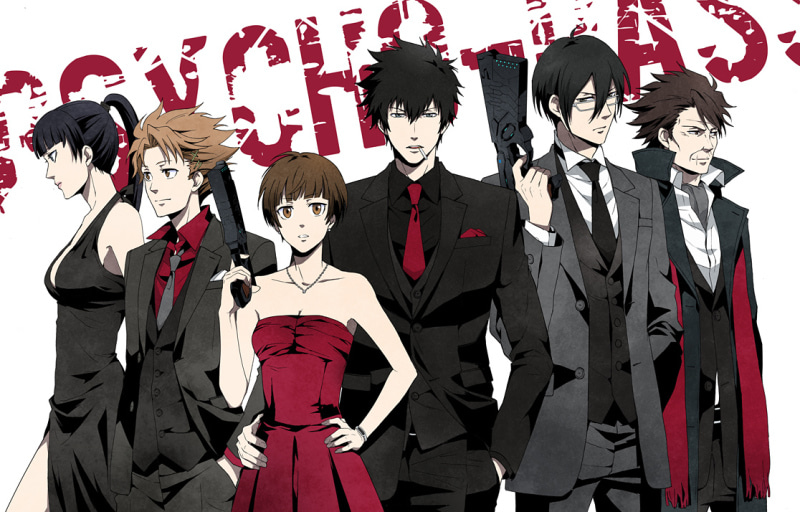Books: Law & Justice
February 13, 2019 · 0 comments
By Jonathan Clements.
 Reading the contributor biographies for the collection Law and Justice in Japanese Popular Culture: From Crime-Fighting Robots to Duelling Pocket Monsters, one gets the sense that this book was put together by a bunch of young, ardent scholars determined to have some fun. I see a lot of PhD candidacies and associate professorships among the writers, suggesting that many are relatively fresh-faced and ready to subvert the stuffy halls of academia. The work, however, is entertaining and thought-provoking – these are all going to be names to watch. Editors Ashley Pearson, Thomas Giddens and Kieran Tranter have assembled a fine team in order to engage with legal issues in a framework that deliberately favours Japan above more familiar superhero and comics territories in the West.
Reading the contributor biographies for the collection Law and Justice in Japanese Popular Culture: From Crime-Fighting Robots to Duelling Pocket Monsters, one gets the sense that this book was put together by a bunch of young, ardent scholars determined to have some fun. I see a lot of PhD candidacies and associate professorships among the writers, suggesting that many are relatively fresh-faced and ready to subvert the stuffy halls of academia. The work, however, is entertaining and thought-provoking – these are all going to be names to watch. Editors Ashley Pearson, Thomas Giddens and Kieran Tranter have assembled a fine team in order to engage with legal issues in a framework that deliberately favours Japan above more familiar superhero and comics territories in the West.
For those who watched Japanese animation as children, many stories were parsed in simplistic legal terms. There is a bad guy that the hero must bring down, a wrong to be righted. But even children’s anime inject more intricate nuances – a conflicted minion whose awakening consciousness inspires her to defect; a hero who offers a helping hand to an enemy in danger. As the five-column entry on “Law and Disorder” in the Anime Encyclopedia testifies, legal issues can unpack from the simplest of entertainments to encompass entire sectors of a society – points of contention among its citizens, assumptions in legal practice, oddities of its criminal justice system, but also the way that society approaches rules and rule-breakers. What happens, for example, as Timothy D. Peters asks here, when a vigilante like Batman is exported to Japan? Can he still be Batman?
Each essay carries its own footnotes and references, suggesting that the editors expect their book to be selectively mined by professors in search of a juicy set reading. When it comes to law and justice in the future, they acknowledge the rich material presented in PSYCHO-PASS, with its all-encompassing Sibyl System, rating citizens so thoroughly that it can predict a threshold of likely criminality. Daniel Hourigan points out the fallacy of attempting to define a “normal” from which people deviate to a greater or lesser degree, and notes that the Sibyl System, far from creating a community, instead creates a society that is effectively post-legal.
 Some of this can get very deep, albeit, I am sure, if it is still a welcome break from charmless case studies for wannabe lawyers. I lack the space to list all the authors and subjects, but as a few examples: Dale Mitchell discusses the way in which a legal persona can be defined through the acquisition and retention of property, and does so with reference to Pokémon Black and White. Penny Crofts and Honi van Rijswijk discuss the nature of “rules” in reference to that ultimate list of do’s and don’ts, the curse that kicks off The Ring, but also playfully liken the horror genre itself to a legal system of sorts, complete with its own precedents and rulings, procedures and customs. Rosie Taylor-Harding discusses the “power of clothes” in Kill la Kill, arguing that they both regulate and empower the human body, confining women within particular roles and hierarchies. James C. Fisher uses One Piece, Attack on Titan and Fullmetal Alchemist to examine the assumptions that Japanese audiences might be expected to make about legal authority. Giorgio Fabio Colombo uses Miyabe Miyuki’s novel All She Was Worth to discuss the intricacies of the Japanese family registration system, while Richard Powell and Hideyuki Kumaki write up the history, significance and uses of the humble police box, vital for neighbourhood cohesion.
Some of this can get very deep, albeit, I am sure, if it is still a welcome break from charmless case studies for wannabe lawyers. I lack the space to list all the authors and subjects, but as a few examples: Dale Mitchell discusses the way in which a legal persona can be defined through the acquisition and retention of property, and does so with reference to Pokémon Black and White. Penny Crofts and Honi van Rijswijk discuss the nature of “rules” in reference to that ultimate list of do’s and don’ts, the curse that kicks off The Ring, but also playfully liken the horror genre itself to a legal system of sorts, complete with its own precedents and rulings, procedures and customs. Rosie Taylor-Harding discusses the “power of clothes” in Kill la Kill, arguing that they both regulate and empower the human body, confining women within particular roles and hierarchies. James C. Fisher uses One Piece, Attack on Titan and Fullmetal Alchemist to examine the assumptions that Japanese audiences might be expected to make about legal authority. Giorgio Fabio Colombo uses Miyabe Miyuki’s novel All She Was Worth to discuss the intricacies of the Japanese family registration system, while Richard Powell and Hideyuki Kumaki write up the history, significance and uses of the humble police box, vital for neighbourhood cohesion.
The book’s use of Japanese pop culture touchstones is impressively broad and informed, while its considerations of legal matters embrace many interesting areas. Thomas Giddens discusses the laws of nature itself, as implied in the “ecological jurisprudence” of Hayao Miyzaki’s Nausicaä, while an entire section of the book is devoted to multiple authors grappling with the real world – such as Yuichiro Tsuji on the status of fan-created works, Hadeel Al-Alosi on the legality of yaoi, and and Thomas Baudinette on the way in which gay manga might reflect changing legal issues. And you can’t possibly think about law and justice in Japan without examining Death Note, that long-running fan favourite about a teenager handed the power to kill anyone he chooses. For Ashley Pearson, Death Note is a commentary on the Japanese process of capital punishment, taking something that usually moves at a glacial pace and speculating about the likely effects of its reverse: instant, and possibly erroneous justice.
OBJECTION! In a book that is devoted to both Japanese popular culture and the law, there is not a single mention of Phoenix Wright, the famous (although apparently not that famous) Ace Attorney. It seems like an oversight conspicuous enough to make me wonder if it were deliberate, and that far from being an exemplar of the law in Japanese society, the Capcom legal-eagle game series is regarded by real legal minds with eye-rolling frustration. Is Ace Attorney instead regarded as a Japanese carnivalisation of American customs and behaviours, including adversarial justice – a celebration of things that are abnormal to local legal practice? That, in itself, might have been something worth mentioning in the introduction, if indeed it is the case.
Law and Justice in Japanese Popular Culture is packed with interesting concepts and articles. It will prove particularly useful as a wildcard for the savvy college tutor – something to throw into the reading list in order to engage with young students about the implications of Pokémon fights or the way that the best sci-fi anime can suggest new and prickly areas of legal dispute. It also offers valuable details on some of the peculiarities of the real-world Japanese legal system, as seen through the way they influence the plots of thrillers, and even the assumptions that fictional characters make about the nature of right and wrong.
Jonathan Clements is the author of Anime: A History. Law and Justice in Japanese Popular Culture: From Crime-Fighting Robots to Duelling Pocket Monsters is published by Routledge.
Leave a Reply